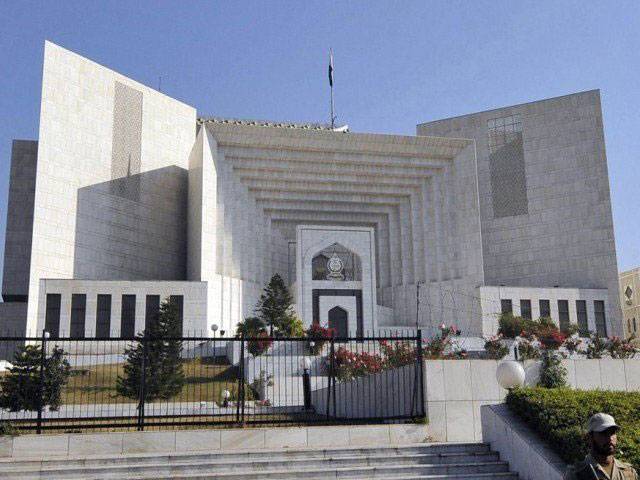ISLAMABAD - International Law expert Ahmer Bilal Soofi on Thursday informed the Supreme Court that extradition of former ambassador to United States Hussain Haqqani in the contempt of court could not be made possible.
He, however, informed that the extradition process needed to be invoked through National Accountability Bureau (NAB) on account of criminal breach of trust allegedly committed by Haqqani in funds.
“NAB has the option to process the request for extradition under Article 44 or chapter IV of United Nations Convention Against Corruption (UNCAC) 2003, which can be used by member states for bilateral extradition,” Soofi informed the bench.
Soofi is appointed as amicus curiae by the top court which is seized with the matter of extradition of former US envoy Hussain Haqqani emanated from Memogate case.
A three-judge bench headed by Chief Justice Mian Saqib Nisar and comprising Justice Umar Ata bandial and Justice Ijazul Ahsan took up the matter for hearing wherein Soofi said that NAB could also explore options relating to mutual legal assistance in the said matter under Section 21 of NAB Ordinance.
According to Soofi, two separate offences transpired attributed to Haqqani. The first include Haqqani’s breach of undertaking which he gave to the top court as well as to the Special Commission wherein he voluntarily promised to return and appear.
His breach of the undertaking constitutes contempt of court in terms of Article 204 of the Constitution, Soofi said.
He added that Haqqani was also facing a charge of criminal breach of trust on the grounds that he had failed to account for the funds handed over to him by the government in his capacity as the then ambassador to the US.
“This relates to the charge of criminal breach of trust, misappropriation, cheating and embezzlement. The offences under which the said FIR has also been lodged overlaps with the offence of corruption and corrupt practices under Section 9 of NAB Ordinance,” he added.
He informed the top court that there were two broad international agreements to govern the process of extradition between Pakistan and the USA. The one international agreement, he said, was USA-UK Treaty of 1932, to which Pakistan succeeded as a successor state after independence, and extraditable offences enlisted in Article 3.
The second one, he added, was the UNCAC 2003 which was a multi-lateral treaty but can be used as a bilateral instrument by virtue of Chapter VI for extradition in respect of crimes covered under the instrument.
He informed that the Contempt of Court was neither listed as an extraditable offence under USA-UK Treaty 1932 nor under the UNCAC 2003.
“This means that Haqqani’s default of his own undertaking is not an enlisted extraditable offence under the said two legal instruments,” said Soofi.
The offence of criminal breach of trust is not expressly listed as an offence under Article 3 of the USA-UK Treaty of 1932.
However, criminal breach of trust under Section 409 PPC read with Section 9 of NAB Ordinance is also an offence in terms of Article 17 of UNCAC, he added.
The Article 17 of UNCAC states, “each State party shall adopt such legislative and other measures as may be necessary to establish as criminal offences, when committed intentionally, the embezzlement, misappropriation or other diversion by a public official for his or her benefit or for the benefit of another person or entity, of any property, public or private funds or securities or any other things of value entrusted to the public official by virtue of his or her position.”
“For the above referred article in the international convention, our implementing legislation will deem to be Section 9 of the NAB Ordinance,” Soofi further submitted.
He also said that alternate mechanisms could still be invoked in terms of serving a formal letter upon the US government expressing the displeasure of the top court and seeking more cooperation from the USA.
“Pakistan may also take up the matter on reciprocity basis as per the state practice of Pakistan with US, Pakistan has been cooperating to its fullest extent in handing over suspects earlier,” he submitted.
Chief justice asked whether extradition was possible on request of Federal Investigation Agency (FIA) for red warrant.
“The notices issued by the INTERPOL, especially the Red Notice, in this legal setting are not a replacement or a substitute for extradition,” said Soofi adding in this context FIA may continue its efforts and pursue the Red Notice but the extradition process needed to be invoked simultaneously through NAB.”
Soofi further submitted a draft of guidelines, which he prepared, and said that the court may consider approving for FIA to facilitate its transnational investigations in several cases.
He said that the proposed draft guidelines are drawn from state practice of MLA in international law.
Chief justice appreciated the efforts of Ahmer Bilal Soofi for providing assistance in the matter as well as preparing a comprehensive draft of the law.
The bench then directed the federal government to submit its reply on Soofi’s submissions as legislative steps to be taken in this regard. The bench also directed Prosecutor General NAB to file the reply on the submissions. The top court will again take up the case after Eid vacations.






